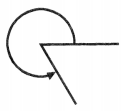By accessing our 180 Days of Math for Sixth Grade Answers Key Day 140 regularly, students can get better problem-solving skills.
180 Days of Math for Sixth Grade Answers Key Day 140
Directions: Solve each problem.
Question 1.
24 + 32 + 45 = _________
Answer:
24 + 32 + 45 = 101
Explanation:
Perform addition operation on above given three numbers. Add 24 with 32 and 45 the sum is 101.
Question 2.
Multiply 120 by 300.
Answer:
120 × 300 = 36,000
Explanation:
Perform multiplication operation on above given two numbers. Multiply 120 with 300 the product is 36,000.
Question 3.
Calculate 528 ÷ 4.
Answer:
528 ÷ 4 = 132
Explanation:
Perform division operation on above given numbers. Divide 528 by 4 the quotient is 132.
Question 4.
Write the smallest possible number using 8, 1, 2, and 4.
Answer:
The smallest possible number using the given numbers 8, 1, 2, and 4 are 1,248.
Explanation:
To get the smallest number we should write smallest digit first and remaining digits in ascending order. So the smallest number from above given numbers will be1,248.
Question 5.
Round 4.75 to the nearest whole number.
Answer:
4.75 is rounded to the nearest whole number as 5.
Explanation:
If the first digit after decimal point is less than 5 then we have to remove the numbers after decimal point.
If the first digit after decimal point is greater than or equal to 5, then we have to add 1 to the number before decimal point and remove all the numbers after decimal point.
The first digit after decimal point is 7 which is greater than 5. So, add the number 1 to the before decimal point number 4.
So, 4.75 is rounded to the nearest whole number as 5.
Question 6.
Write the next number in the sequence. 1,560; 1,660; 1,760;
Answer:
The given sequence is 1,560; 1,660; 1,760.
The difference between first two numbers in the sequence is 100.
1,660 – 1,560 = 100
The difference between second two numbers in the sequence is 100.
1,760 – 1,660 = 100
So, add 100 to the next number in the sequence number 1,760 the sum is1,860.
17,60 + 100 = 1,860
The next number in the sequence is1,560; 1,660; 1,760; 1,860.
Question 7.
\(\frac{9}{10}\) –  = \(\frac{4}{10}\)
= \(\frac{4}{10}\)
Answer:
\(\frac{9}{10}\) –  = \(\frac{4}{10}\)
= \(\frac{4}{10}\)
Explanation:
By subtracting 5/10 from 9/10 then we get the difference as 4/10.
Question 8.
Find y.
17 – y = 9
y = __________
Answer:
17 – y = 9
17 – 9 = y
8 = y
Explanation:
To calculate ‘y’ value in given expression. We have to subtract 9 from 17 the difference is 8.
Question 9.
Record the line length.

Answer:
The line length is 3 cm.
Explanation:
In the above image we can observe a scale. Above the scale a dark line is drawn. We have to find the length of the dark line. The dark line is started at 0 cm and ended at 3 cm. So, The line length is 3 cm long.
Question 10.
Is the angle acute, obtuse, or reflex?

Answer:
The above given angle is reflex angle.
Explanation:
The reflex angle is greater than 180 degrees and less than 360 degrees. So, the above given angle is reflex angle.
Question 11.
Sale Prices of Clothes
|
Regular Price |
Discount |
|
| Pants | $32 | 25% |
| Shirts | $24 | 30% |
| Shoes | $45 | 35% |
| Socks | $4 | 10% |
What is the total of all four items before their discounts?
Answer:
The price of the pants before the discount is $32.
The price of the Shirts before the discount is $24.
The price of the Shoes before the discount is $45.
The price of the Socks before the discount is $4.
$32 + $24 + $45 + $4 = $105
The total of all four items before their discount is $105.
Question 12.
Use three of the numerals 3, 4, 5, 12, or 15 to complete the number sentence. Use any numeral once and only once.
_____ ÷ _____ + _____ = 6
Answer:
12 ÷ 4 + 3 = 6
3 + 3 = 6
15 ÷ 5 + 3 = 6
3 + 3 = 6
Explanation:
The given numerals are 3, 4, 5, 12, or 15. By using this numerals we have to complete the number sentence. The two possible number sentences are 12 ÷ 4 + 3 = 6 and 15 ÷ 5 + 3 = 6.